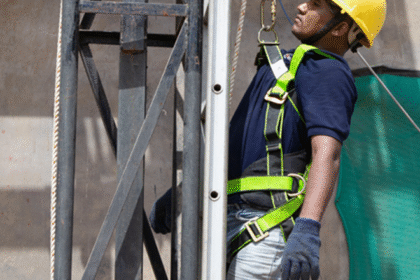Step deck dispatch services help trucking companies and owner-operators manage their freight efficiently by handling load booking, paperwork, routing, and rate negotiation. A professional step deck dispatcher ensures trucks stay loaded with profitable and compliant freight across the USA.
Understanding Step Deck Dispatching
Step deck dispatching is a specialized logistics service that focuses on managing loads for step deck trailers. Also known as drop deck trailers, these trailers are designed for transporting oversized or tall loads that can’t fit inside standard flatbeds.
A dispatching step decks acts as the bridge between drivers and shippers, ensuring the trucker always has the next profitable load ready. From managing paperwork to negotiating rates, dispatchers handle the behind-the-scenes work that keeps the wheels turning and revenue flowing.
In the USA, step deck dispatch services are a vital part of the trucking supply chain, helping independent drivers and small fleets compete with large carriers by providing professional logistics support.
What Is a Step Deck Trailer and Why It Matters in Dispatching
A step deck trailer has two levels — an upper deck and a lower deck — which allows it to carry taller loads without exceeding legal height limits. It’s commonly used for hauling equipment, machinery, building materials, and other heavy cargo.
Because of the trailer’s versatility, step deck dispatching requires specialized knowledge. Dispatchers must understand freight dimensions, weight limits, and state-by-state transport regulations to find loads that match the equipment safely and profitably.
For example, a step deck dispatcher in the Midwest might coordinate loads of construction machinery moving between Illinois and Ohio, ensuring the truck remains compliant with bridge laws and oversize permit requirements.
The Role of a Step Deck Dispatcher
A step deck dispatcher wears many hats, balancing communication, negotiation, and coordination. Their core responsibilities include:
-
Load Planning: Identifying and scheduling freight that fits the truck’s capacity, route, and timing.
-
Rate Negotiation: Securing the highest possible rates for drivers while maintaining good relationships with brokers and shippers.
-
Paperwork Management: Handling rate confirmations, bills of lading, and other required documentation.
-
Route Optimization: Planning the most fuel-efficient and time-saving routes across U.S. highways.
-
Compliance Checks: Ensuring each load meets federal and state transport laws, including oversize permits.
This combination of tasks allows drivers to focus on driving safely and efficiently while dispatchers handle logistics and administration.
Why Step Deck Dispatch Services Are Crucial for Owner-Operators
Running a trucking business in the U.S. can be demanding, especially for independent owner-operators. Many drivers struggle to balance finding loads, negotiating rates, and completing paperwork — all while managing their on-road schedules.
That’s where step deck dispatch services come in. They take the stress off drivers by managing the back-end work, allowing truckers to focus on delivering freight.
Here’s how dispatching services directly benefit owner-operators:
-
Consistent Loads: Dispatchers keep trucks moving, reducing downtime and increasing earning potential.
-
Higher Profit Margins: Experienced dispatchers negotiate better rates and reduce empty miles.
-
Professional Representation: Dispatchers handle calls and broker communications professionally, building stronger relationships.
-
Administrative Support: From invoices to compliance paperwork, dispatchers streamline operations.
In short, hiring a skilled step deck dispatcher can transform an independent driver’s business into a well-oiled operation.
How Step Deck Dispatching Works in Practice
The dispatching process typically follows a structured flow to ensure efficiency and profitability.
-
Load Search and Booking: The dispatcher searches for available freight that matches the step deck’s capabilities.
-
Rate Negotiation: Once a suitable load is found, the dispatcher negotiates competitive rates with brokers or shippers.
-
Driver Coordination: The dispatcher confirms pickup and delivery times with the driver and ensures route clarity.
-
Paperwork Handling: All required shipping documents are prepared and shared promptly.
-
On-Road Support: During transit, dispatchers monitor progress and assist with any delays or issues.
-
Delivery Confirmation: Once the load is delivered, the dispatcher verifies completion and prepares billing information.
This full-cycle approach ensures smooth operations, reliable scheduling, and transparent communication between all parties involved.
Step Deck Dispatching vs. Flatbed Dispatching
Although step deck and flatbed trailers share similarities, their dispatching requirements differ. Step decks are often used for taller or more complex freight, meaning dispatchers must have more technical knowledge.
| Feature | Step Deck Dispatch | Flatbed Dispatch |
|---|---|---|
| Trailer Design | Two deck levels for taller loads | Single flat deck |
| Load Type | Machinery, vehicles, tall equipment | Construction materials, pipes |
| Permits Required | Often required for oversize loads | Usually not required |
| Dispatcher Expertise | Specialized in height and route compliance | General flatbed logistics |
A step deck dispatcher not only finds freight but also ensures that load height and route permits comply with U.S. Department of Transportation (DOT) regulations.
Qualities of a Professional Step Deck Dispatcher
To deliver efficient step deck dispatch services, dispatchers need more than just industry experience — they need the right skills and mindset.
-
Industry Knowledge: Understanding load types, lane rates, and regional freight patterns.
-
Negotiation Skills: Maximizing driver revenue while maintaining positive broker relations.
-
Communication: Keeping both drivers and clients informed at every step.
-
Problem Solving: Handling breakdowns, delays, and last-minute cancellations.
-
Regulatory Awareness: Ensuring compliance with DOT, FMCSA, and state-level transport laws.
A dispatcher with these traits doesn’t just move freight — they build long-term partnerships that benefit both drivers and clients.
USA Freight Market and Step Deck Dispatch Demand
The U.S. trucking industry continues to rely heavily on specialized equipment like step deck trailers. States such as Texas, California, and Pennsylvania see consistent demand for construction and industrial shipments that require step decks.
Seasonal shifts, infrastructure projects, and manufacturing growth all contribute to steady dispatch opportunities. For instance, in regions like the Midwest, agricultural and machinery loads dominate much of the year, keeping step deck dispatchers busy scheduling and managing routes.
With this market consistency, professional step deck dispatch services play a crucial role in helping small carriers secure stable, high-paying freight year-round.
Choosing the Right Step Deck Dispatch Service
Selecting a reliable dispatching partner is critical to ensuring success. When evaluating potential dispatch services, drivers should look for:
-
Transparent Pricing: No hidden fees or unfair commission structures.
-
Experience with Step Deck Freight: Proven track record managing oversized and heavy loads.
-
Availability: 24/7 support for scheduling and emergency assistance.
-
Load Board Access: Ability to source from multiple load boards and broker networks.
-
Paperwork Efficiency: Streamlined billing and compliance documentation.
Partnering with a professional step deck dispatch service gives drivers peace of mind that their business is being managed strategically, not just transactionally.
Maximizing Profits with Step Deck Dispatching
Profitability in trucking depends on reducing downtime, optimizing fuel usage, and securing top-paying freight. Dispatchers help achieve all three.
-
Reduced Empty Miles: Dispatchers plan backhauls to minimize deadhead mileage.
-
Efficient Routing: GPS-based planning ensures drivers take the shortest and safest routes.
-
Load Matching: Freight is matched precisely with trailer specs to avoid compliance issues.
-
Rate Analysis: Dispatchers monitor market trends to capitalize on seasonal pricing peaks.
By combining data-driven decision-making with hands-on communication, step deck dispatchers enable consistent earnings and operational growth.
Common Challenges in Step Deck Dispatching
Even with expert management, step deck operations face industry challenges. These include fluctuating fuel prices, unpredictable freight availability, and regulatory updates.
Dispatchers must stay adaptable, quickly identifying alternative loads or rerouting to prevent downtime. Their ability to manage multiple variables — from weather delays to broker disputes — is what separates top-performing dispatchers from average ones.
A skilled dispatcher not only reacts to challenges but anticipates them, ensuring minimal disruption for their drivers and clients.
Future of Step Deck Dispatch Services in the USA
With the rise of digital freight platforms and real-time load tracking, the dispatching industry is evolving fast. Modern step deck dispatch services now integrate technology like AI load matching, GPS tracking, and automated documentation systems.
This evolution benefits both drivers and clients by increasing transparency and reducing manual work. However, human expertise remains irreplaceable. While technology streamlines processes, experienced step deck dispatchers still make the critical decisions that software can’t — like evaluating broker reliability or anticipating load-specific risks.
As the U.S. logistics sector continues to expand, demand for professional dispatchers will remain strong, particularly for specialized freight like step decks.
FAQs About Step Deck Dispatching
What is a step deck dispatch service?
It’s a dispatching solution focused on managing loads for step deck trailers, handling everything from booking to compliance paperwork.
How does a step deck dispatcher help drivers?
They find high-paying loads, negotiate rates, plan routes, and manage administrative tasks so drivers can focus on deliveries.
What kind of loads do step deck trailers carry?
They typically haul tall or oversized cargo such as heavy machinery, vehicles, or building materials.
Is step deck dispatching profitable?
Yes. With efficient load management and strong negotiation, it offers higher profit potential than standard freight dispatching.
Are step deck dispatch services available nationwide?
Most dispatch companies in the U.S. operate nationwide, covering key freight hubs across all major states.
Final Thoughts
Step deck dispatching is more than just finding loads — it’s about strategic management, route optimization, and long-term business growth. A professional step deck dispatcher understands the U.S. freight landscape, knows how to navigate challenges, and ensures drivers stay loaded, compliant, and profitable.
For owner-operators and small fleet owners, investing in expert step deck dispatch services can be the key to unlocking consistent income and business stability in an increasingly competitive trucking market.



